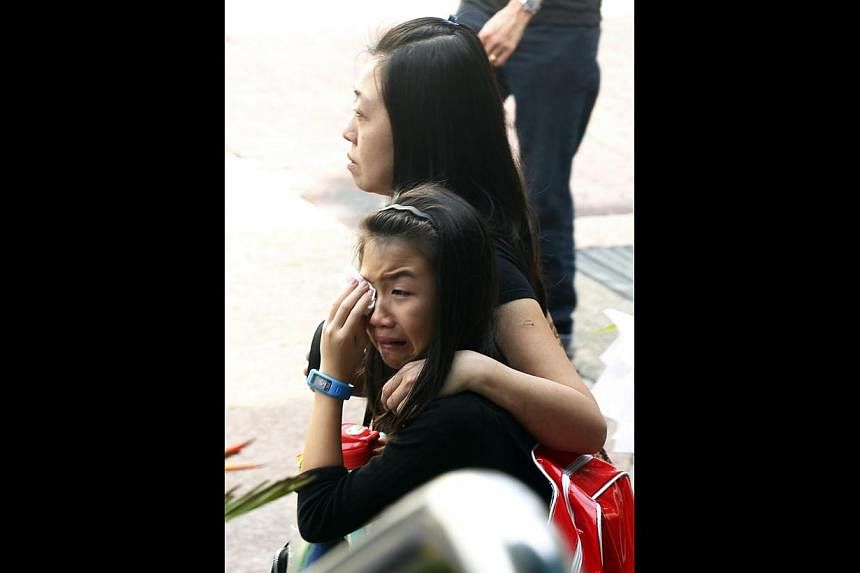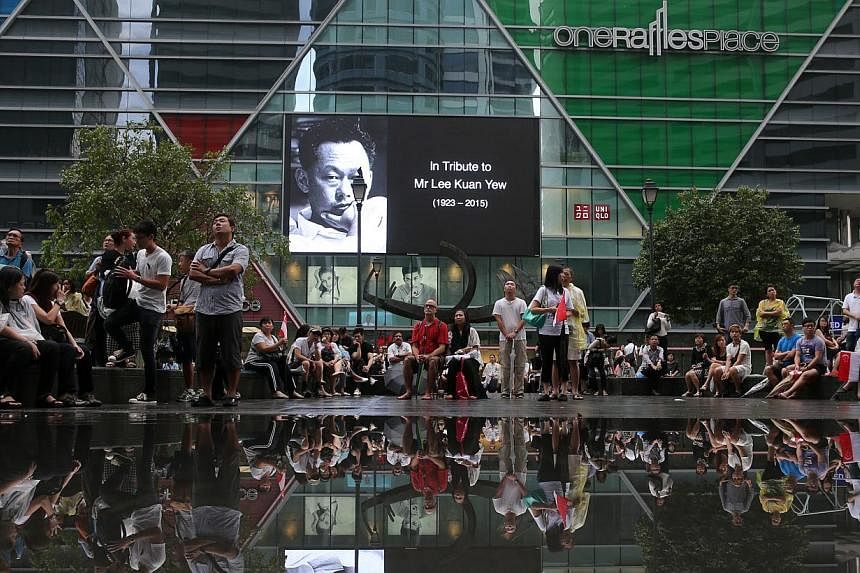The guestbook spoke volumes: the entry from the young girl who thanked Mr Lee Kuan Yew for giving her safe streets at night and "the luxury of deciding what and where to study"; the scrawl of the Indian gentleman beside her expressing gratitude for this "great country".
Invocations of "Allah" and "God", declarations like "I love you", as well as Malay phrases and Chinese characters peppered other entries on the facing page.
Standing at the East Coast and Joo Chiat Community Tribute Centre yesterday afternoon, I who make my living from words was at a loss for them. Finally I wrote, simply: "My condolences to you, PM Lee Hsien Loong and family, on the loss of your father and our first Prime Minister."
One of the big questions of the past seven days must surely be what accounted for the emotional outpouring among usually reticent Singaporeans in reaction to Mr Lee's death at age 91.
Veteran opposition politician Chiam See Tong provided part of the answer when he likened the man who was arguably his fiercest political opponent to the country's Churchill.
"He was there at the time when Singapore was swamped with numerous problems, ranging from domestic to international issues. He was there, just as Britain needed Winston Churchill during World War II - always taking a strategic and long-term view of Singapore," said Mr Chiam, 80, now almost bent double from old age and illness but with the clarity that sometimes comes from a rival rather than a friend.
In a nutshell, many Singaporeans felt they owed something to Mr Lee, and this cut across age, gender, race and religion. This was their last chance to express it to the strongman leader whose tough love had mobilised a nation and carved out a place for it in the sun; the arch-pragmatist whose devastating, take-no-prisoners brand of oratory had a way of bringing all political debates down to earth.
He did not leave anything to faith or chance, but believed in being two steps ahead of the competition. To improve Singapore's chances of success, he retooled everything from the languages we spoke to the number of babies we had. We lived with the rapid economic growth, legislated multiracialism, bilingual education policy and overarching state control that were his imprints, internalising these to no small extent even if we disagreed with some policies.
Crowd psychology is a complex affair, of course, and gratitude is only one of the elements fuelling the overwhelming turnout to say a final goodbye.
One can discern group solidarity - the cheers of the crowd along the route of yesterday's funeral procession and the shouts of "Lee Kuan Yew, Lee Kuan Yew!" evoked a National Day Parade or post-election victory parade, rather than a state funeral.
The most bandied-about question of the past week, "Are you going?", carried with it a fear of missing out on a historic moment and even peer pressure. Mr Lee's body had lain in state at Parliament House until Saturday, and several hundred thousand people formed snaking queues to pay their last respects to him there.
Finally, the public mourning carries with it nostalgia for an earlier era when Singapore faced a crisis of survival and needed forceful leadership.
Today that survival is taken for granted, but the aspirations of Singaporeans are more complex, the hunger for alternative voices is greater and the divisions in society no less deep. In that sense, Mr Lee was a product of his time and it is debatable if a young man cut from the same cloth as him would succeed as spectacularly in today's political arena.
In a 1986 parliamentary debate, Mr Chiam once likened Mr Lee's dominance to that of a banyan tree with roots so well spread out that nothing else can grow under it.
In a sense then, the national grieving over the past week has also been about release, much in the same way that the death of an elderly parent allows one finally to find oneself.
In the years ahead, the country will look to new leaders across the political spectrum to fill the void. Until then, the collective mourning is akin to that last great imagined huddle under the banyan's shade, before new shoots spring up to take its place.


